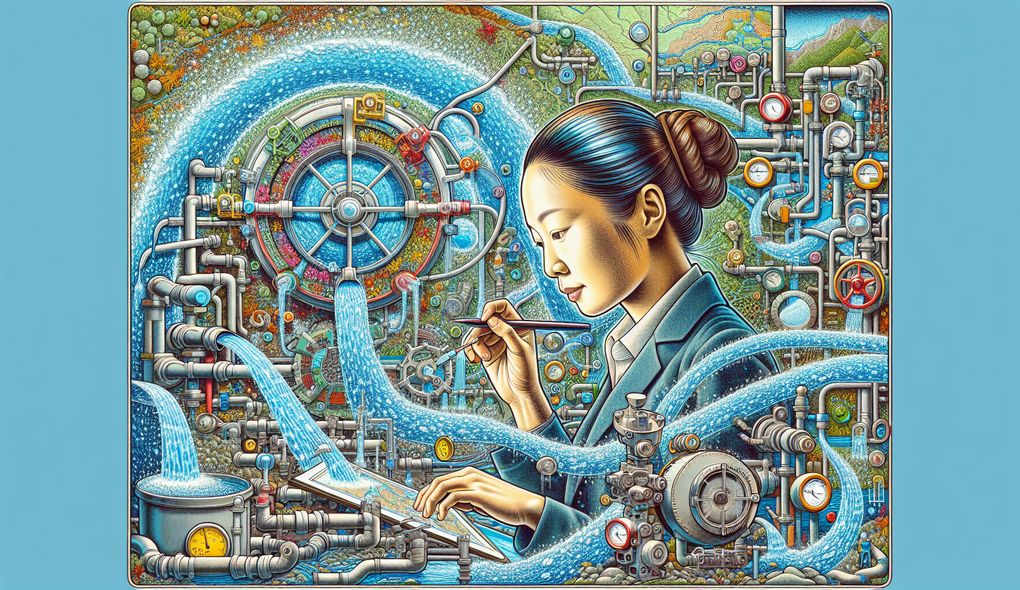Describe a time when you identified a potential risk in a water resource project and took steps to mitigate it.
SENIOR LEVEL

Sample answer to the question:
In a previous water resource project, I identified a potential risk related to the water quality. During the initial site assessment, I noticed the presence of pollutants in the water source that could negatively impact the project's objectives. To mitigate this risk, I immediately conducted a thorough analysis of the water quality and identified the sources of pollution. I collaborated with the project team to develop a comprehensive mitigation plan, which included implementing measures to prevent further pollution, such as creating buffer zones and implementing stormwater management practices. I also established a regular monitoring system to track the water quality and ensure that the mitigation measures were effective. Through these proactive steps, we were able to successfully mitigate the risk and maintain the integrity of the water resource project.
Here is a more solid answer:
In a water resource project I worked on, I encountered a potential risk related to the availability of water supply. During the initial assessment, I noticed that the projected water demand exceeded the available water resources, which could have led to a shortage and compromised the success of the project. To address this risk, I utilized my expertise in hydrologic modeling and conducted a detailed water balance analysis. I identified potential water sources for augmentation and proposed sustainable strategies to optimize water use. I collaborated with the project team and stakeholders to develop a comprehensive water management plan that included the implementation of water conservation measures, such as rainwater harvesting and recycled water systems. Additionally, I coordinated with local government agencies to secure the necessary permits and ensure compliance with environmental regulations. By proactively addressing the water supply risk and implementing sustainable practices, we successfully mitigated the potential impact and ensured the long-term viability of the project.
Why is this a more solid answer?
The solid answer provides specific details about how the candidate identified and mitigated a potential risk in a water resource project. It demonstrates their strong analytical and problem-solving skills, advanced knowledge of hydrology and water resource systems, expertise in hydrologic modeling and risk assessment, in-depth understanding of environmental regulations and policies, and collaboration skills. However, it could be further improved by including examples of leadership and project management abilities, as well as proficiency in GIS and remote sensing technologies.
An example of a exceptional answer:
During a water resource project I led, I encountered a significant risk related to the potential contamination of the water supply from nearby industrial activities. Through my advanced knowledge of hydrology and water resource systems, I conducted a comprehensive risk assessment, which included analyzing the proximity, type, and volume of pollutants generated by the industries. I collaborated with a team of experts and stakeholders to develop a multi-faceted mitigation strategy that involved implementing pollution prevention measures, conducting regular water quality monitoring, and establishing early warning systems. Additionally, I organized a series of community workshops to raise awareness about the risks and foster community engagement in monitoring efforts. To ensure the success of the mitigation plan, I took on a leadership role in coordinating with government agencies and securing additional funding for the project. By effectively addressing the risk and involving the community, we successfully safeguarded the water resource and established a model for sustainable water management in the region.
Why is this an exceptional answer?
The exceptional answer showcases the candidate's exceptional skills and experience in addressing risks in water resource projects. It demonstrates their strong analytical and problem-solving skills, advanced knowledge of hydrology and water resource systems, expertise in hydrologic modeling and risk assessment, in-depth understanding of environmental regulations and policies, leadership and project management abilities, proficiency in GIS and remote sensing technologies, as well as their excellent interpersonal and collaboration skills. The answer also highlights the candidate's commitment to sustainable and eco-friendly water resource practices. It provides specific details about how they identified and mitigated a significant risk, taking a proactive and comprehensive approach that involved collaboration, community engagement, and leadership.
How to prepare for this question:
- Familiarize yourself with hydrologic modeling and risk assessment techniques, as they are crucial in identifying and mitigating risks in water resource projects.
- Highlight your experience in conducting water quality analysis and developing mitigation strategies for potential risks.
- Demonstrate your proficiency in GIS and remote sensing technologies, as they are commonly used tools in water resource management.
- Showcase your knowledge of environmental regulations and policies related to water resource projects.
- Provide examples of your leadership and project management abilities in previous water resource projects.
- Prepare to discuss your experience in mentoring and training junior team members.
- Think of how you can demonstrate your commitment to sustainable and eco-friendly water resource practices.
- Practice explaining how you have effectively communicated complex technical information to stakeholders and non-technical audiences.
What are interviewers evaluating with this question?
- Strong analytical and problem-solving skills
- Advanced knowledge of hydrology and water resource systems
- Leadership and project management abilities
- Expertise in hydrologic modeling and risk assessment
- Proficiency in GIS and remote sensing technologies
- In-depth understanding of environmental regulations and policies
- Excellent interpersonal and collaboration skills

